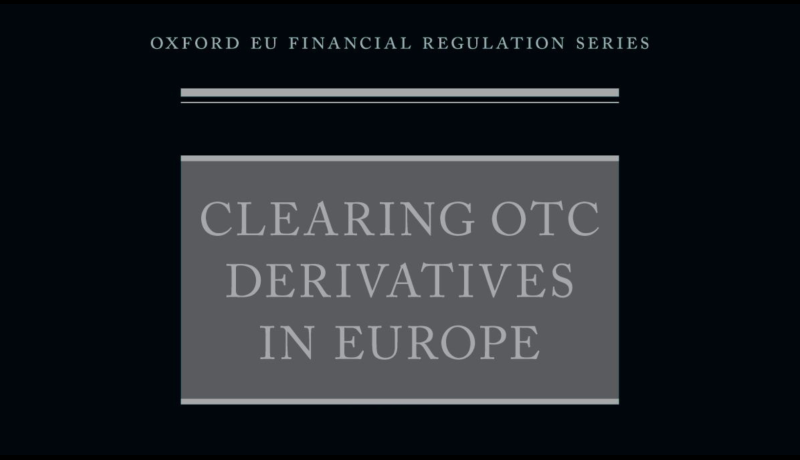Changing the fundamentals? EMIR 3.0 and the future of clearing
Clearing of over-the-counter (OTC) derivatives is an essential part of the financial market infrastructure, and performs a critical risk-hedging function catering to the need of market participants. As a response to the financial crisis, central clearing has also added greater safety and transparency in the financial sector. Nevertheless, many concerns related to the concentration of risk remain.
In December 2022, the European Commission proposed the review of the European Market Infrastructures Regulation (EMIR 3.0). The objective is to make the EU clearing landscape more attractive, resilient, and to broaden access to liquidity. The proposal includes simplifications in terms of authorisation and intragroup exemptions, as well as requirements that would ensure additional transparency and predictability of central counterparty (CCP) risk models. In addition, EMIR 3.0 would expand the scope of competences of the European Securities and Markets Authority’s (ESMA) CCP Supervisory Committee, and enhance the tools promoting supervisory convergence. To this end, the proposal is an essential review of the CCP regulatory and supervisory framework.
However, the risk of creating competitive disadvantages for EU firms remains. Some of the most contentious issues are the proposed Pillar 2 prudential measures, as well as the requirement on active accounts. EU-based banks will now need to double accounts from the main financial centres, and face a cost disadvantage.
Recent years have been marked by significant difficulties for financial markets: during the 2020 pandemic, equity markets faced unprecedented volatility; while with Russia’s invasion to Ukraine in 2022, the commodities markets experienced high volatility and price levels; on top of that, the macroeconomic environment has been marked by high inflation and low economic growth. Despite these challenges, the derivatives ecosystem have proven to be resilient.
On the occasion of the recently published book, Clearing OTC Derivatives in Europe (Bas Zebregs, Victor de Serière, Patrick Pearson, and Rezah Stegeman (Eds.) – Oxford University Press 2023), the Centre for European Policy Studies (CEPS) and the European Capital Markets Institute (ECMI) jointly invite you to this half-day conference.
14:30 – 15:00 Registration
15:00 – 15:05 Introductory remarks by Karel Lannoo, CEO of CEPS; General Manager of ECMI
15:05 – 15:30 Keynote Speech by Klaus Löber, Chair, CCP Supervisory Committee, and Director of CCPs, ESMA
15:30 – 16:30 First session: EMIR 3.0: Are we getting it right?
- Gilles Hervé, Policy Officer, DG FISMA, European Commission
- Danuta Hübner, ECON Committee, Member of the European Parliament
- Randy Priem, Coordinator, Markets and Post-trading, FSMA
- Ulrich Karl, Head of Clearing Services, ISDA
- Klaus Löber, Chair, CCP Supervisory Committee, and Director of CCPs, ESMA
Moderated by Patrick Pearson, Former Head of Financial Market Infrastructure and Derivatives at the European Commission
16:30 – 17:00 Coffee break
17:00 – 18:15 Second session: How does the industry sees the future of clearing?
- Matthias Graulich, Member of the Executive Board, Eurex Clearing AG
- Corentine Poilvet-Clédière, CEO, LCH SA
- Tina Hasenpusch, Managing Director, Global Head of Clearing House Operations, CME Group
- Bas Zebregs, Head of Financial Markets, APG Asset Management; Fellow, Radboud University
- Emma Dwyer, Former Head of Derivatives and Structured Finance, Allen & Overy
- Isabelle Boutin, Head of EMEA Derivatives Clearing Sales, JPMorgan
Moderated by Corinna Schempp, Vice President of European Policy & Regulation, FIA
18:15 Presentation of the book “Clearing OTC Derivatives in Europe”, by Rezah Stegeman (co-editor and Head of Financial Markets, Simmons & Simmons), followed by networking drinks
Sponsored by





